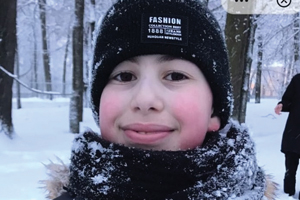
ICEJ Sponsors Camps for Jewish Youths
Young people play a significant part in determining the future of a country. Therefore, the Christian Embassy is supporting Jewish youth, not only in Israel but also in other lands—especially to encourage them to make Aliyah to the promised land.
However, in the case of the former Soviet republics, this often involves reestablishing the connection between the Jewish community and their religious and cultural roots, which were severed during the Communist era.
“During the seven decades of the Soviet regime, the Jewish community of the former Soviet Union (FSU) experienced severe identity loss,” explained Roman Polonski, director of the FSU department for The Jewish Agency for Israel Israel (JAFI). “Thirty years after the regime’s collapse, only an estimated 20 percent of the 800,000 Jews across the broad expanse of what is now the FSU are meaningfully engaged in Jewish life. Russian-speaking Jews, therefore, have unique Jewish educational needs.”
In response, the ICEJ has been sponsoring Aliyah programs for Jewish youths for many years, including youth Aliyah camps. In these JAFI camps, Jewish children from age seven and up learn about Israel and the opportunities that await them here. Through the Naale and Sela programs, they also can continue their education and Jewish identity-building in Israel. Altogether, these youth Aliyah programs have been a huge success in bringing Jewish children to Israel ahead of their parents, who also benefit once they arrive. Thus, it has been a great blessing for the ICEJ to support these youth camps and other pre-Aliyah programs.
In fact, the ICEJ helped sponsor two Aliyah camps earlier this year. One occurred near St. Petersburg, with 34 young people aged 10 to 15. Joined by six counselors, they enjoyed their camp experience in the historic city of Pushkin, a suburb of St. Petersburg. The camps helped participants embrace their Jewish identity and learn about Israeli culture through creative workshops, games, and other activities.
One local attendee, 11-year-old Daniel, was thrilled to take part. “I really enjoyed [it],” he said. “The camp counselors made it fun and productive. We studied the history, traditions, and culture of the Jewish people, [and] held various master classes and games.”
history, traditions, and culture of the Jewish people, [and] held various master classes and games.”
Another ICEJ-assisted camp took place near Minsk, in Belarus, which included 52 children plus their camp counselors. The camp was allowed to happen despite strict COVID restrictions, which meant twice as many buses were needed. Thanks to our Christian supporters around the world, the ICEJ quickly covered these extra expenses as well.
Life in Belarus is difficult, and parents want their children to transition to Israel, where they know it will be better. And we have the privilege to witness young Belarusian Jews discovering and embracing their heritage after decades of concealing it.
Young Israelis usually staff these Aliyah youth camps, and it is inspiring for the campers to connect with them as they learn about life in modern Israel. For most children, the camp is their first genuine encounter with what it means to be Jewish, providing the foundation of their Jewish identity and nurturing the desire to make Aliyah.
Please continue to support our Aliyah efforts in helping more young Jewish people find their future in Israel and be a blessing to their country.
Give toward the Aliyah efforts of the ICEJ.


